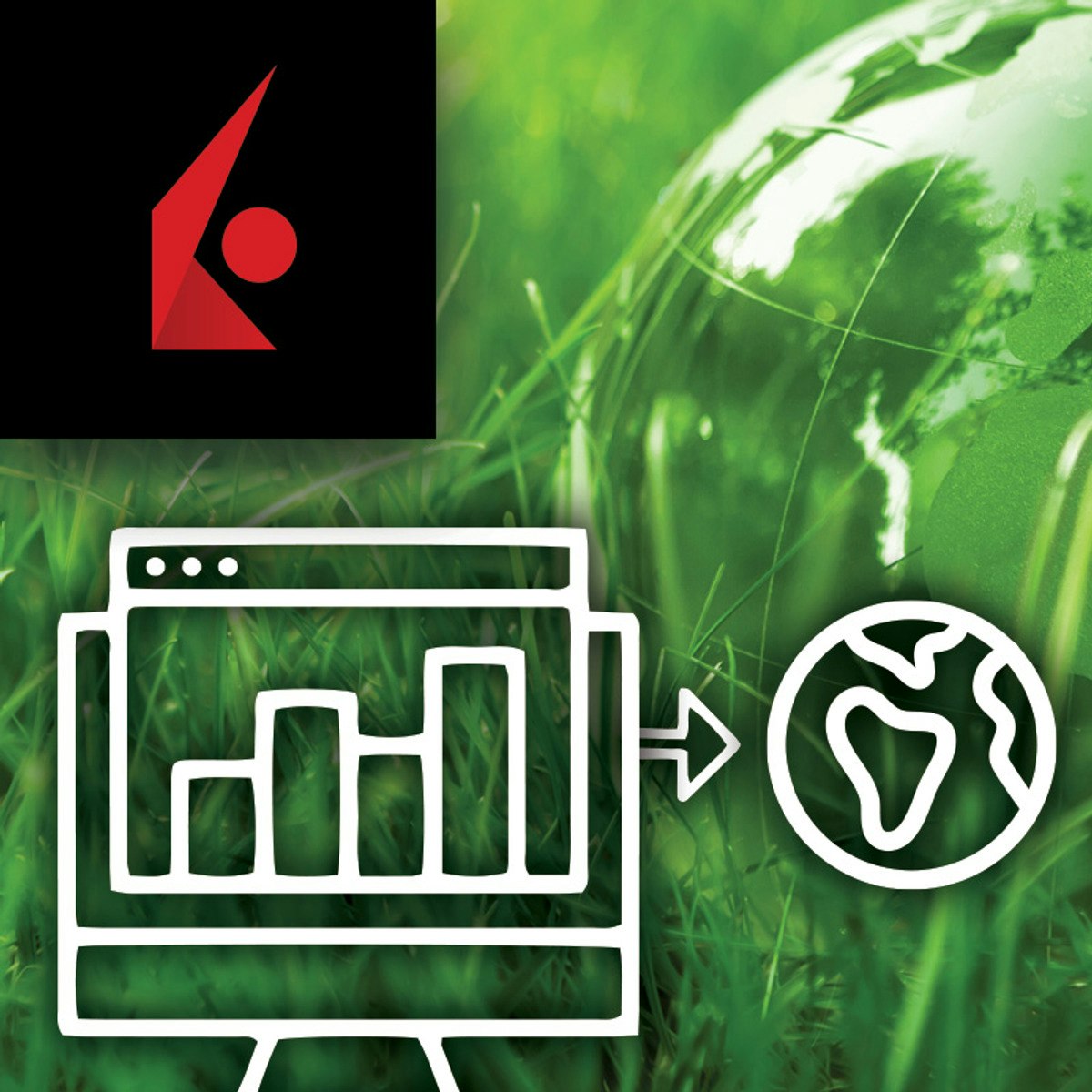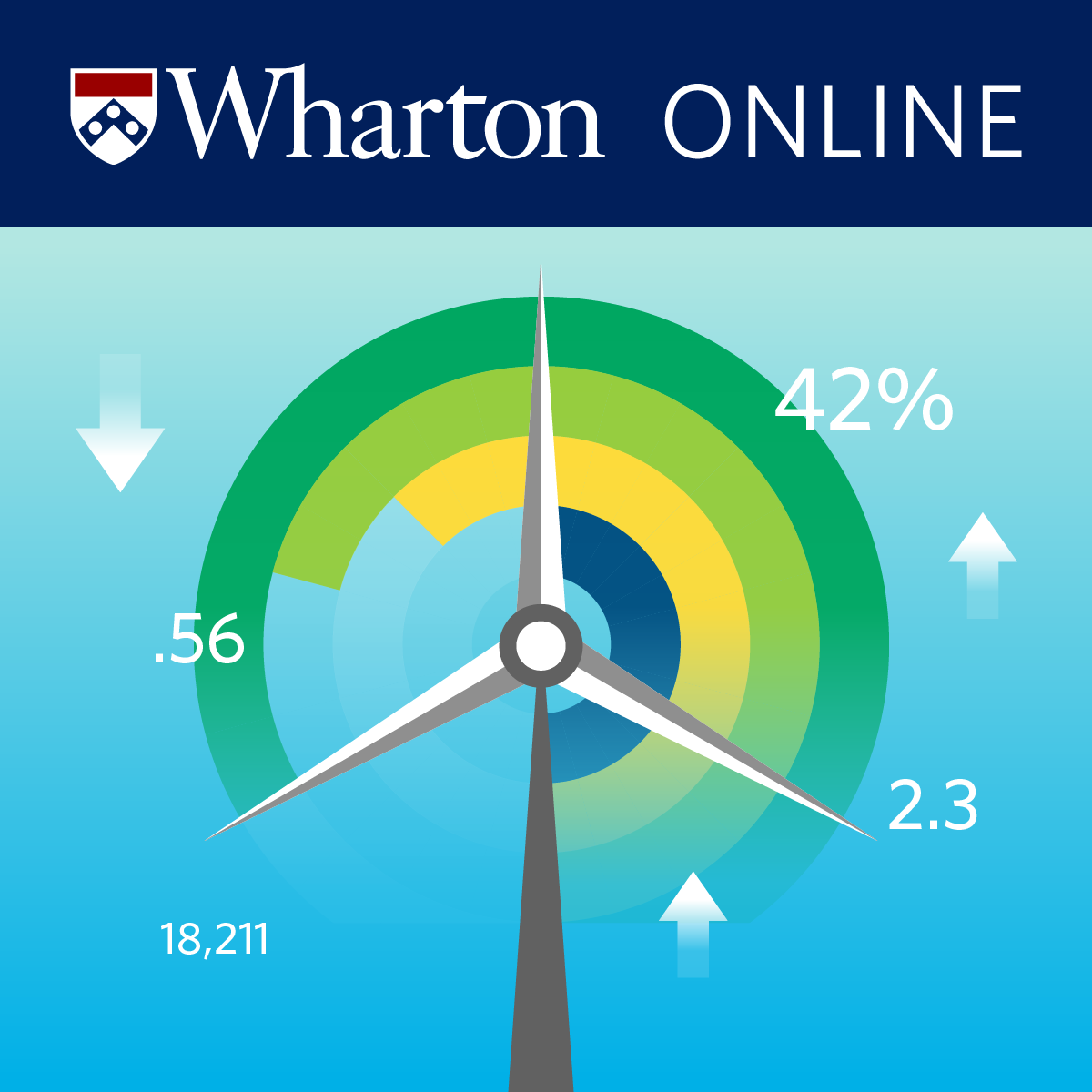ESG Analyst
ESG Analyst: Shaping Sustainable Futures
An Environmental, Social, and Governance (ESG) Analyst plays a critical role in today's financial and corporate landscapes. These professionals evaluate how companies manage risks and opportunities related to environmental sustainability, social responsibility, and corporate governance. Their work informs investment decisions, corporate strategy, and stakeholder communication, moving beyond traditional financial metrics to provide a holistic view of a company's performance and long-term viability.
Working as an ESG Analyst can be intellectually stimulating and impactful. You'll delve into complex global issues like climate change, human rights, and ethical leadership, analyzing how these factors affect businesses and investments. The role offers the chance to influence corporate behavior and contribute to a more sustainable and equitable world, making it an engaging career path for those passionate about blending finance with purpose.
Introduction to ESG Analyst Roles
This section introduces the fundamental concepts of ESG analysis and the context in which ESG Analysts operate.
What is an ESG Analyst?
ESG stands for Environmental, Social, and Governance. An ESG Analyst is a professional responsible for researching and evaluating how companies perform in these three key areas. They examine factors beyond traditional financial statements to understand a company's broader impact and associated risks.
The core objective of an ESG Analyst is to assess the sustainability and ethical impact of companies. This involves analyzing environmental policies (like carbon emissions and resource management), social factors (such as labor practices, human rights, and community relations), and governance structures (including board composition, executive pay, and business ethics).
Ultimately, ESG Analysts aim to integrate this non-financial information into investment analysis and corporate strategy. Their insights help investors identify risks and opportunities that traditional financial analysis might overlook, and guide companies toward more responsible and sustainable practices.
Why Consider an ESG Analyst Career?
The field of ESG analysis is rapidly growing in importance. As investors, regulators, and the public increasingly demand corporate accountability, the need for skilled professionals who can assess ESG performance is surging. This creates significant career opportunities across various sectors.
ESG Analysts are employed in diverse industries, including asset management firms, investment banks, private equity, consulting firms, rating agencies, and within corporations themselves (often in sustainability or investor relations departments). This versatility allows for varied career paths and experiences.
The role is globally relevant, as ESG frameworks and regulations are being developed and implemented worldwide. Working as an ESG Analyst means engaging with international standards and contributing to global sustainability efforts, offering a career with both local impact and international scope.
Key Responsibilities of an ESG Analyst
Understanding the day-to-day tasks and core duties provides a clearer picture of what working as an ESG Analyst entails.
Gathering and Interpreting ESG Data
A primary responsibility is collecting vast amounts of data related to a company's ESG performance. This information comes from company reports (like sustainability reports), third-party data providers (such as MSCI, Sustainalytics), news sources, NGO reports, and direct company engagement.
Once data is gathered, the analyst must critically evaluate its quality, reliability, and relevance. This often involves dealing with incomplete or non-standardized data, requiring strong analytical skills to interpret metrics, identify patterns, and draw meaningful conclusions about ESG risks and opportunities.
The analysis informs ESG scores or ratings, which quantify a company's performance. Analysts use various methodologies and models to assess factors like carbon footprint, water usage, employee diversity, supply chain labor standards, and board independence.
These courses offer insights into ESG concepts and data analysis, crucial for this aspect of the role.
For those interested in the quantitative aspects, understanding metrics is key. This book provides a foundation.
Reporting and Engagement
ESG Analysts synthesize their findings into clear, concise reports for various audiences, including portfolio managers, investment committees, clients, and corporate leadership. These reports highlight key ESG risks, opportunities, and performance assessments.
Effective communication skills are vital. Analysts must articulate complex ESG issues and their financial implications to stakeholders who may not have deep expertise in sustainability. This often involves presentations and discussions.
Engaging with companies is another key aspect. Analysts may participate in dialogues with company management to understand their ESG strategies, challenges, and progress, or to advocate for improved performance and disclosure. This interaction helps gather qualitative insights and influence corporate behavior.
This book explores stakeholder engagement, a critical skill for ESG Analysts.
Investment Integration
A core function for many ESG Analysts, particularly those in asset management, is integrating ESG factors into the investment decision-making process. This means considering ESG risks and opportunities alongside traditional financial analysis.
Analysts help portfolio managers understand how ESG issues might affect a company's long-term value, risk profile, and reputation. This could involve screening out companies with poor ESG records, tilting portfolios towards ESG leaders, or engaging with companies to drive positive change (stewardship).
They develop and apply frameworks for assessing the materiality of ESG factors for different industries and companies. This helps ensure that investment strategies align with specific ESG mandates or client preferences for responsible investing.
These courses delve into the investor perspective and integrating ESG into financial decisions.
This book offers insights into the complexities of responsible investment.
Compliance and Regulation
The ESG landscape is increasingly shaped by regulations and reporting standards. Analysts must stay abreast of evolving requirements, such as the EU's Corporate Sustainability Reporting Directive (CSRD) or standards from the International Sustainability Standards Board (ISSB).
They help ensure that their organizations or the companies they analyze comply with relevant ESG disclosure mandates. This involves understanding the specifics of different frameworks (like GRI, SASB, TCFD) and how they apply.
Monitoring regulatory developments globally is crucial, as changes can significantly impact investment strategies, corporate reporting obligations, and the definition of sustainable activities. Analysts assess the implications of new rules and advise on necessary adjustments.
Understanding specific frameworks is essential. This book provides guidance on SASB implementation.
Formal Education Pathways for Aspiring ESG Analysts
While passion for sustainability is important, a solid educational foundation is typically required to enter and succeed in the ESG Analyst field.
Undergraduate Foundations
A bachelor's degree is generally the minimum requirement. Degrees in fields like Finance, Economics, Environmental Science, Sustainability Studies, or Business Administration provide relevant foundational knowledge.
Finance and economics programs offer crucial understanding of financial markets, valuation, and risk assessment. Environmental science or sustainability degrees provide depth on environmental challenges, climate science, and ecological principles, vital for the 'E' in ESG.
Business degrees often cover aspects of corporate strategy, ethics, and governance relevant to the 'S' and 'G'. Combining disciplines, perhaps through a major/minor combination or elective coursework, can create a strong, well-rounded profile.
These courses provide a solid foundation in ESG and sustainability concepts suitable for those starting their educational journey.
Advanced Studies and Research
Many ESG Analysts hold advanced degrees. A Master's degree, such as an MBA with a sustainability concentration, a Master's in Sustainable Finance, Environmental Management, or Corporate Social Responsibility, can significantly enhance career prospects.
These programs offer specialized knowledge, advanced analytical tools, and opportunities for research and networking. They often delve deeper into specific ESG topics like climate risk modeling, impact measurement, or sustainable supply chains.
PhD research also contributes significantly to the ESG field, pushing the boundaries of understanding on topics like climate economics, corporate governance impacts, or effective social impact metrics. While not required for most analyst roles, a PhD can lead to specialized research or academic positions influencing ESG frameworks and practices.
These courses touch upon more advanced concepts relevant to graduate-level study.
Professional Certifications
Certifications can demonstrate specialized knowledge and commitment to the field. Several ESG-focused credentials have gained recognition among employers.
The CFA Institute's Certificate in ESG Investing is widely recognized, particularly within the finance industry. It provides a broad overview of ESG concepts, integration techniques, and market context, typically requiring around 100-130 hours of study.
Other relevant certifications include the Sustainability Accounting Standards Board (SASB) FSA Credential (focused on understanding the link between sustainability and financial performance) and GARP's Sustainability and Climate Risk (SCR) certificate (focused on climate risk management).
These courses provide preparation for or cover content relevant to ESG certifications.
Obtaining certifications like the CFA ESG Certificate can significantly boost credibility and demonstrate specialized knowledge to potential employers.
Online and Self-Directed Learning for ESG Analysts
Beyond formal degrees and certifications, online learning offers flexible and accessible ways to build ESG knowledge and skills, whether you're starting out, changing careers, or upskilling.
Essential Topics for Self-Study
Key areas to focus on include understanding core ESG concepts, major reporting frameworks (GRI, SASB, TCFD, ISSB), climate science basics, carbon accounting principles, corporate social responsibility (CSR) strategies, and sustainable finance mechanisms (like green bonds).
Familiarity with ESG data sources, rating agency methodologies, and basic data analysis techniques is also crucial. Learning about specific regulations impacting ESG, such as the EU Taxonomy or SFDR, is increasingly important.
Exploring topics like impact investing, circular economy models, biodiversity risk, and human rights due diligence can further deepen expertise. OpenCourser provides a vast library where you can browse sustainability courses covering these diverse topics.
These courses cover essential ESG topics suitable for self-paced learning.
Learning Through Projects
Applying knowledge through practical projects is invaluable. Consider undertaking personal projects like analyzing the ESG report of a familiar company against a specific framework (e.g., SASB) or comparing the ESG scores of competitors in a sector using publicly available data.
You could also research and write a mock investment memo for a company, focusing on its material ESG risks and opportunities. Another project idea is developing a hypothetical ESG engagement strategy for a company facing specific sustainability challenges.
Contributing to open-source sustainability projects or volunteering with non-profits on ESG-related initiatives can also provide hands-on experience. Documenting these projects in a portfolio can effectively showcase your skills to potential employers.
Bridging Theory and Practice
Online courses provide theoretical knowledge, but bridging this with practical application is key. Look for courses that include case studies, simulations, or assignments requiring analysis of real-world scenarios.
Supplement online learning by reading industry reports from consulting firms (like McKinsey Sustainability or Deloitte), financial institutions, and ESG research providers. Follow ESG news outlets and thought leaders on platforms like LinkedIn.
Attend webinars, virtual conferences, or local sustainability events (if possible) to hear from practitioners and learn about current challenges and best practices. This helps connect theoretical concepts to the realities of the field.
This course offers insights into practical implementation.
From Self-Study to Employment
Transitioning from self-study or online courses into a formal ESG role requires demonstrating your acquired knowledge and commitment. Highlight relevant coursework, projects, and any certifications on your resume and LinkedIn profile.
Tailor your applications to specific roles, emphasizing transferable skills from previous experiences (e.g., analytical skills from finance, research skills from academia, project management). Networking is crucial; connect with professionals in the field through online platforms or industry events.
Be prepared to discuss your understanding of ESG concepts, frameworks, and current trends during interviews. Frame your career change or entry into the field as a deliberate move driven by passion and informed by your self-directed learning efforts. It takes persistence, but a well-structured learning path combined with effective networking can open doors.
Consider using OpenCourser's features to track your learning. You can save relevant courses and books to a personalized list using the "Save to List" feature, making it easy to manage your learning path.
Career Progression for ESG Analysts
The ESG field offers various growth opportunities, from entry-level positions to senior leadership roles across different sectors.
Starting Your Journey
Entry-level roles often involve titles like ESG Analyst, ESG Research Assistant, or Sustainability Analyst. These positions typically focus on data gathering, supporting senior analysts in research, preparing preliminary analyses, and helping with report generation.
In these initial roles, you'll build foundational knowledge of ESG frameworks, data sources, and analytical techniques. It's a crucial period for learning industry specifics, understanding company reporting practices, and developing core analytical skills.
Employers often look for candidates with relevant degrees, strong analytical abilities, attention to detail, and a demonstrated interest in sustainability. Internships or relevant project work can be significant advantages.
These courses offer foundational knowledge suitable for those starting out.
Mid-Career Advancement
With several years of experience, analysts can progress to Senior ESG Analyst or ESG Specialist roles. Responsibilities may include leading specific research areas (e.g., climate risk, social impact), managing small projects, mentoring junior analysts, and having more direct engagement with companies or clients.
Mid-career professionals might also specialize, focusing on a particular industry sector or a specific ESG theme. Some transition into related roles, such as Portfolio Managers integrating ESG factors, Sustainable Finance Specialists, or Corporate Sustainability Managers within companies.
This stage often requires deeper expertise, stronger strategic thinking, and enhanced communication and stakeholder management skills. Advanced degrees or certifications like the CFA ESG can be particularly valuable for advancement.
This book provides insights relevant to strategy, useful for mid-career progression.
Reaching Leadership Positions
Experienced ESG professionals can move into leadership roles like ESG Manager, Director of ESG, Head of Sustainable Investing, or Chief Sustainability Officer (CSO).
These positions involve setting strategic direction for ESG integration or corporate sustainability initiatives, managing teams, overseeing reporting and compliance, representing the organization externally, and advising senior management or the board.
Leadership requires a blend of deep ESG expertise, strong management skills, strategic vision, and the ability to influence decision-making at the highest levels. Success often involves navigating complex stakeholder relationships and driving organizational change.
Moving Across Industries
ESG skills are transferable across various sectors. An analyst starting in an asset management firm might later move to a consulting role, advising companies on ESG strategy, or join a corporation to lead its sustainability efforts.
Opportunities also exist in rating agencies, data providers, non-profits focused on advocacy or standard-setting, regulatory bodies, and international organizations. This cross-industry mobility allows professionals to gain diverse perspectives and tailor their careers to their interests.
The growing demand for ESG expertise means skills developed in one sector are often highly valued in others, facilitating transitions and offering a dynamic long-term career path.
Technical and Soft Skills for ESG Analysts
Success as an ESG Analyst requires a blend of quantitative, qualitative, regulatory, and adaptive skills.
Quantitative Abilities
Strong analytical skills are essential for processing and interpreting complex ESG data. This includes proficiency in working with spreadsheets (Excel) and potentially statistical software or data visualization tools (like Tableau or Power BI).
Analysts need to understand and apply various ESG scoring methodologies and frameworks. Familiarity with financial modeling and risk assessment techniques is often required, especially in investment-focused roles, to link ESG factors to financial performance.
Experience with carbon accounting principles and greenhouse gas emissions calculations is increasingly valuable, particularly given the focus on climate risk.
These courses touch on analytical skills relevant to ESG.
Qualitative Strengths
Excellent written and verbal communication skills are paramount. Analysts must clearly convey complex ESG information through reports, presentations, and discussions with diverse stakeholders.
Critical thinking is needed to evaluate the quality and credibility of ESG data and corporate disclosures, identify greenwashing, and form independent judgments about company performance.
Strong research skills are necessary to gather information from various sources, synthesize findings, and stay informed about emerging ESG issues and trends. Interpersonal skills are important for collaborating within teams and engaging effectively with company representatives or clients.
This book covers integrated management, touching upon qualitative aspects.
Understanding the Regulatory Landscape
A solid understanding of the evolving ESG regulatory environment is crucial. This includes familiarity with key regulations like the EU's CSRD and SFDR, standards from the ISSB, and guidelines from bodies like TCFD.
Analysts need to understand how these regulations impact corporate reporting requirements and investment product disclosures. This knowledge helps ensure compliance and informs analysis of regulatory risks.
Keeping up-to-date with regulatory developments across different jurisdictions is essential, as the landscape is dynamic and geographically diverse.
These courses cover reporting standards and regulatory aspects.
Adaptability and Continuous Learning
The ESG field is constantly evolving, with new issues emerging, standards changing, and data becoming more sophisticated. Analysts must be adaptable and committed to continuous learning to stay current.
A willingness to learn new analytical techniques, understand emerging sustainability challenges (like biodiversity loss or digital ethics), and adapt to new reporting requirements is vital for long-term success.
Curiosity and a proactive approach to professional development, whether through formal training, self-study, or engagement with the ESG community, are key attributes.
ESG Analyst Roles in Different Industries
While core skills are similar, the specific focus and priorities of an ESG Analyst can vary significantly depending on the industry they work in or analyze.
Sector-Specific Focus
In the energy sector, an ESG analyst might focus heavily on carbon emissions, transition risks related to fossil fuels, water management, and community impacts of operations.
For technology companies, key ESG issues might include data privacy and security, ethical AI development, supply chain labor practices (especially regarding electronics manufacturing), energy consumption of data centers, and electronic waste management.
In consumer goods, focus areas could be sustainable sourcing of raw materials, packaging waste, supply chain transparency, labor conditions in manufacturing, and product safety. Analysts must understand the unique ESG challenges and opportunities inherent to each sector.
These courses explore sustainability across different contexts, including business and finance.
Regulatory Nuances by Industry
Industry-specific regulations often shape ESG priorities. For example, financial institutions face specific rules around climate risk disclosure and sustainable finance labeling (like SFDR in the EU).
Extractives industries may face stringent environmental regulations regarding site remediation and biodiversity protection. Healthcare companies navigate complex social issues related to drug pricing, access to medicine, and patient safety.
Analysts need to be aware of these sector-specific regulatory pressures and how they influence corporate behavior and ESG reporting within that industry.
This course touches upon compliance in financial institutions.
Success Stories in ESG Integration
Examining case studies of successful ESG integration provides valuable insights. Examples might include companies that reduced operational costs through energy efficiency initiatives (Environmental), improved employee retention via enhanced labor practices (Social), or built investor trust through transparent governance structures (Governance).
Analyzing how specific companies have turned ESG challenges into opportunities for innovation or competitive advantage helps illustrate the tangible benefits of strong ESG performance.
Learning from both successes and failures in different industries helps analysts refine their assessment methodologies and provide more effective recommendations.
This course explores CSR and includes case studies.
Emerging Fields for ESG
ESG principles are increasingly being adopted in new and emerging sectors. Areas like biotechnology, artificial intelligence, space exploration, and the circular economy present unique ESG challenges and opportunities.
Analysts are needed to develop frameworks and metrics tailored to these novel contexts. For instance, assessing the ethical implications of AI or the long-term environmental impact of space debris requires new analytical approaches.
Staying aware of technological advancements and evolving business models is important for analysts looking to work at the forefront of ESG integration in these dynamic fields.
These courses touch upon emerging areas like Green Finance and AI in sustainability.
Challenges Faced by ESG Analysts
While rewarding, the role of an ESG Analyst comes with significant challenges that require resilience, critical thinking, and adaptability.
Navigating Data Complexities
A major challenge is the availability, quality, and consistency of ESG data. Unlike standardized financial reporting, ESG data can be patchy, self-reported, lack third-party assurance, and vary significantly across companies and industries.
Analysts must grapple with differing reporting frameworks, methodologies, and metrics, making direct comparisons difficult. Determining the reliability and materiality of data requires careful judgment.
The sheer volume of potential data points (often over 1,000 for comprehensive frameworks like CSRD) presents a significant management challenge, particularly for organizations relying on manual processes or spreadsheets.
These courses discuss ESG data and related complexities.
Addressing Greenwashing
Greenwashing—where companies present a misleadingly positive image of their ESG performance—is a persistent challenge. Analysts must develop a critical eye to identify unsubstantiated claims or selective reporting.
This involves scrutinizing corporate communications, comparing claims against actual performance data, looking for independent verification, and understanding potential motivations behind specific disclosures.
Detecting greenwashing requires deep subject matter expertise, analytical rigor, and sometimes, investigative research skills to uncover the reality behind the marketing.
Managing Stakeholder Expectations
ESG Analysts often navigate conflicting interests among stakeholders. Investors may prioritize financial returns, while employees might focus on social issues, and environmental groups advocate for stronger ecological protection.
Balancing these diverse expectations when making recommendations or assessing performance can be difficult. Analysts need strong communication and negotiation skills to manage these dynamics.
Defining materiality itself can be contentious, as different stakeholders may view the importance of specific ESG issues differently. Analysts must often justify their focus areas based on rigorous analysis.
This book delves into governance and stewardship issues.
Geopolitical Influences
Global events and geopolitical shifts can significantly impact ESG factors. Trade disputes might affect supply chain ethics, political instability can influence governance risks, and international climate agreements (or lack thereof) shape environmental pressures.
Analysts must consider these macro-level factors and how they interact with company-specific ESG performance. This requires a broad understanding of global affairs and the ability to assess complex, interconnected risks.
Diverging regulatory approaches to ESG across different regions (e.g., US vs. EU) also add complexity, requiring analysts to understand and navigate multiple legal and cultural contexts.
Future Trends Impacting ESG Analyst Careers
The field of ESG analysis is dynamic, influenced by technological advancements, evolving regulations, and shifting societal expectations. Staying aware of these trends is key for career longevity.
Technology's Role
Artificial intelligence (AI) and machine learning (ML) are increasingly used to process large volumes of unstructured ESG data (like news articles or company reports), identify patterns, and potentially enhance predictive analysis of ESG risks.
Advances in satellite imagery and remote sensing offer new ways to monitor environmental factors like deforestation or emissions. Blockchain technology is being explored for enhancing transparency in supply chains.
Analysts will need to understand how these technologies work, interpret their outputs, and potentially develop skills in using AI/ML tools for ESG analysis. Technological literacy is becoming increasingly important.
This course explores AI's role in sustainability.
This course looks at Blockchain applications in sustainability.
Regulatory Evolution
The trend towards mandatory ESG reporting is expected to continue and expand globally. Regulations like the EU's CSRD, which began phasing in for reports published in 2025, set a precedent for more comprehensive and standardized disclosures.
Specific areas like climate-related financial disclosures (following frameworks like TCFD or ISSB's IFRS S2) are becoming standard requirements in many jurisdictions. Increased regulatory scrutiny necessitates greater rigor in data collection, reporting, and assurance.
Analysts must continuously monitor and adapt to these evolving regulatory demands. According to the European Commission, the Corporate Sustainability Reporting Directive (CSRD) represents a significant step, requiring reporting according to detailed European Sustainability Reporting Standards (ESRS).
Global Standards Development
Efforts are underway to harmonize global ESG reporting standards, notably through the work of the International Sustainability Standards Board (ISSB). The goal is to create a global baseline for sustainability disclosures, reducing the burden of multiple frameworks.
However, regional variations and specific jurisdictional requirements are likely to persist. Analysts will need to navigate this complex interplay between global standards and local regulations.
The ongoing development and refinement of standards, like the ISSB's work enhancing the SASB standards, mean that the specifics of ESG reporting will continue to evolve, requiring analysts to stay informed and adaptable.
This book covers green and sustainable finance, relevant to evolving standards.
Frequently Asked Questions
Here are answers to some common questions about pursuing a career as an ESG Analyst.
Is a finance background mandatory for ESG roles?
While helpful, a finance background is not always mandatory. Many successful ESG analysts come from environmental science, sustainability studies, law, social sciences, or engineering backgrounds. However, a strong understanding of financial concepts and markets is generally required, especially for roles within asset management or investment analysis. Professionals from non-finance backgrounds often supplement their expertise with finance coursework or certifications.
How does ESG analysis differ from traditional financial analysis?
Traditional financial analysis primarily focuses on a company's financial statements and economic performance to assess its value and risk. ESG analysis broadens this scope by incorporating non-financial factors related to environmental impact, social responsibility, and corporate governance. It aims to identify risks and opportunities that might not be apparent from financial data alone but can significantly impact long-term performance and sustainability.
What industries hire the most ESG Analysts?
Key hiring industries include financial services (asset management, banking, insurance, private equity), consulting firms specializing in sustainability, ESG rating agencies and data providers, and large corporations across various sectors (especially energy, tech, consumer goods, and healthcare) that are building internal sustainability teams. Non-profits and regulatory bodies also employ ESG experts.
Can ESG skills transition to policy or NGO work?
Yes, absolutely. The analytical skills, understanding of sustainability issues, and knowledge of corporate behavior developed as an ESG analyst are highly valuable in policy-making roles within government agencies or international organizations. NGOs focused on environmental protection, social justice, or corporate accountability also seek individuals with ESG expertise for research, advocacy, and program management.
How volatile is ESG demand during economic downturns?
While no field is entirely immune to economic cycles, the demand for ESG expertise has shown resilience. Regulatory pressures and growing investor focus on long-term sustainability risks tend to support continued demand even during downturns. Some studies suggest ESG funds showed relative resilience during recent market volatility. However, hiring freezes or budget cuts can still impact opportunities, as in any field.
What are typical entry-level salaries for ESG Analysts?
Salaries vary significantly based on location, industry, company size, and individual qualifications. Based on recent data (as of early 2025), entry-level ESG Analyst salaries in the US might range roughly from $60,000 to $85,000 annually. Some sources like ZipRecruiter place the average around $71,000-$74,000, while others like Salary.com suggest a higher average closer to $83,000 for an "ESG Analyst I". Senior roles can command significantly higher compensation, often exceeding $150,000.
Conclusion
Embarking on a career as an ESG Analyst places you at the intersection of finance, sustainability, and corporate responsibility—a field critical to shaping a more sustainable future. It demands a unique blend of analytical rigor, critical thinking, strong communication skills, and a genuine passion for understanding the broader impact of business activities. The work is challenging, requiring continuous learning and adaptation in a rapidly evolving landscape of data, standards, and regulations.
However, the potential rewards are substantial, offering intellectually stimulating work and the opportunity to contribute meaningfully to positive change. Whether you come from finance, environmental science, or another field, pathways exist to enter and thrive in this growing profession. With dedication and the right preparation, a career as an ESG Analyst can be both professionally fulfilling and impactful.



































